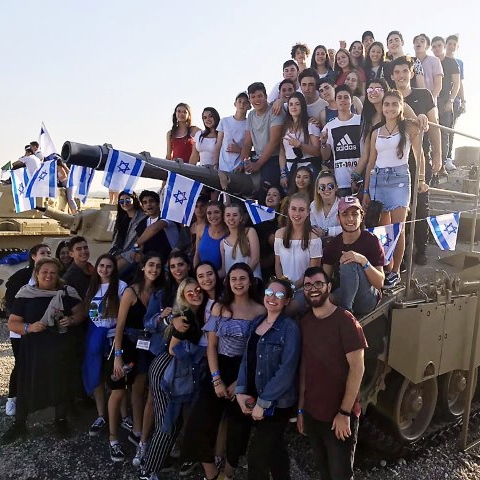News
SA youths’ unforgettable tour of Poland and Israel
Forty Grade 11 pupils from various South African Jewish schools left for a two-week tour of Poland and Israel on April 9.

Top of the agenda in Poland was the March of the Living, where the pupils would join 13 000 of their peers from more than 45 countries.
Various historic stops were made, all building up to the march – a 3km walk from Auschwitz and Birkenau in honour of those who died in the Holocaust at the hands of the Nazis.
On the day of the march, amid unprecedented security, the pupils made their way behind the infamous death camp’s entrance gate with its haunting inscription: “Arbeit Macht Frei”.
The presidents of Israel and Poland marched, as did the Israel Defence Forces (IDF), Israel’s Ashkenazi Chief Rabbi, David Lau, and even some members of the Chelsea Football Club. It was a sobering and humbling experience, made all the more memorable by the shared grief of everyone present.
Shabbat was spent in Warsaw, where the South Africans hosted 12 Polish pupils for an interesting dialogue. After dinner, pupils walked to the Nozyk Shul – the only surviving pre-war synagogue in Warsaw – for Havdallah.
The following day, there was a closing ceremony around the Mila 18 memorial, dedicated to those who fought in the Warsaw Ghetto Uprising.
This marked the end of the pupils’ Poland tour, and they flew on to the second leg: Israel.
Included in this part of the tour programme was an evening spent with Israel’s Ethiopian community and a morning spent with Israeli and Arab high school pupils.
The youngsters got to experience Yom Hazikaron, followed by the joyous Yom Ha’atzmaut celebrations, in Jerusalem. Of course, they spent time at the Kotel and Yad Vashem, as well as in Tel Aviv.
The last day was spent visiting Gush Katif, whose residents were removed in 2005 as part of Israel’s unilateral disengagement from the Gaza Strip, and Sderot.
How does one evaluate such a journey of lows and highs? The general sentiment was one of gratitude for having such an opportunity. Many youngsters spoke of a renewed connection to their Judaism.
One of the biggest challenges that educators face today is how to make the Holocaust, which took place 73 years ago, relevant to adolescents today.
Engaging on this journey with Jewish youth from all over the world taught the South African group that they were now witness to the horrors that had occurred – and that this comes with a responsibility to pass on the history.